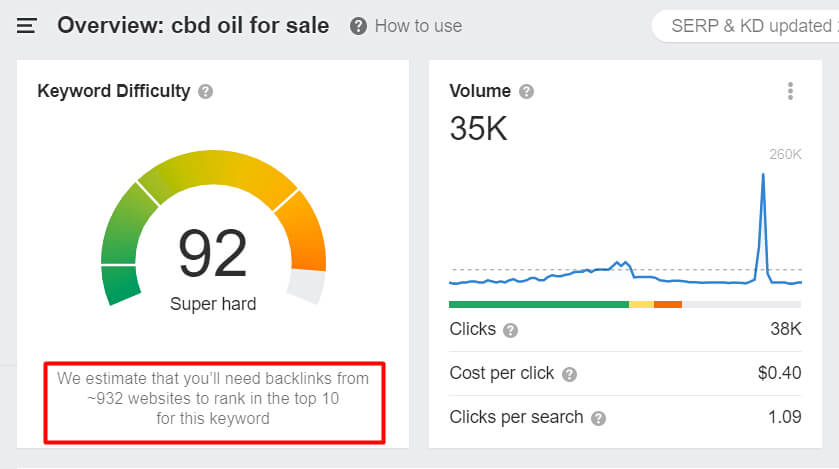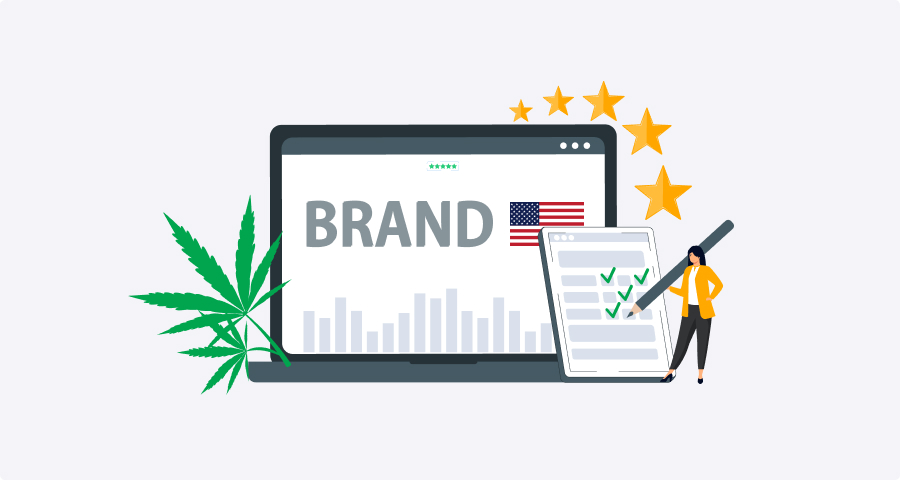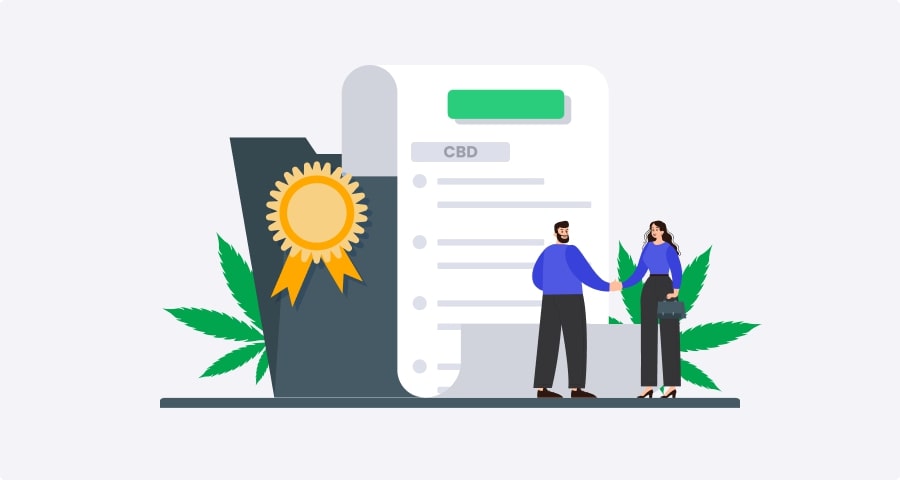TOP-18 SEO Myths That Could Destroy Your Business

Every business owner in any industry knows that understanding the basics of a successful SEO promotion is a must. If we are talking about the marijuana business in the USA, the movements toward the legalization of recreational cannabis and marijuana products have considerably contributed to the increased online competition. Therefore, considering there is no one-size-fits-all solution in SEO, it has been surrounded by many misconceptions. These SEO myths in 2024 must be dispelled in order for you to clearly understand what exactly your business needs when it comes to search engine optimization.
Since SEO is not an exact science, every project requires a unique approach and custom strategy. If you hesitate about your abilities, there is always a solution: resort to the professional services of the MjSeo Agency. The company’s specialists will audit your site and build a strategy to ensure your online presence in the fields you are working in. In the meantime, we have collected the 18 most popular ranking myths and will debunk them. Keep reading to be well-informed ahead of time, no matter what cannabis industry you operate in.
- #1: The Keywords in the Content Are Unnecessary
- #2: Link-Building Won’t Help Boost Rankings
- #3: No Need to Hire an SEO Agency with Deep Niche Proficiency
- #4: SEO Is a One-Time Job
- #5: Results in SEO Are Guaranteed
- #6: PPC Advertising Helps Rankings
- #7: Page Speed Isn’t Important
- #8: Meta Tags Don’t Matter
- #9: SEO Has No Return on Investment
- #10: Longer Content Is Better
- #11: Top-Level Domains Improve Rankings
- #12: Cheap SEO Works the Same Way
- #13: Mobile-First Is Irrelevant
- #14: SEO Gets Results in 3 Months
- #15: Google Will Ignore Your Bad Links
- #16: You Should Do SEO Everyday
- #17: Content Has No Value
- #18: TOP SEO Experts Will Give the Best Result
- Сonclusion
#1: The Keywords in the Content Are Unnecessary
The first misconception on our list of top SEO myths is about keywords. Some SEOs tend to believe that search engines have become advanced enough to comprehend the context of the content, even if it is without any relevant keywords added. However, the truth is that keyword research and content optimized for users’ search intent are the fundamentals of SEO success.
When you conduct keyword research, you choose the most relevant and practical queries for your target audience. Then, when adding them to the content on your platform, you can make the site visible to search engines. Thus, they can pinpoint your website’s subject and index it correctly. Deep research on keywords and phrases likewise helps you be confident that the site will be optimized for the most popular way of searching for a topic. That way, you can attract the most organic search traffic possible.
To sum up, keyword-optimized content will help you rank higher, drive visitors, and boost conversions. Without keywords in your content, however, the platform may get lost in the sea of web pages.
#2: Link-Building Won’t Help Boost Rankings
The time when it was effective to use spun articles, forum comments, and irrelevant directories as link sources has passed. Search engine algorithms have considerably changed, and now link-building is not that easy, but it is still essential. The thought that link building is not a ranking factor is a fallacy that can also be treated as one of the SEO myths. Google “rewards” one platform that possesses high-quality, relevant links while penalizing another for spammy ones.
However, when it comes to building links, it all depends on the industry your business operates in. There are niches where backlinks are one of the multiple approaches that will impact rankings. In most fields, however, this is not the case. There are industries where a great backlink profile may turn into a big game-changer because it is almost impossible to reach the TOP-100 in search results without it.

To be specific, links undoubtedly have ranking power. But in most cases, they do if building a backlink profile goes along with publishing keyword-optimized and compelling content and developing the platform’s usability. You can find out what makes backlinks still important from our post if you want to be more knowledgeable about link-building specifics in 2024.
#3: No Need to Hire an SEO Agency with Deep Niche Proficiency
Since Google can handle over a hundred billion searches per month, it is almost impossible to foresee what keywords will appear tomorrow. Thus, there is no guarantee of fast search engine rankings for any particular platform or industry. But it is possible to provide long-lasting results from a successful SEO strategy if you hire an optimization provider with wide expertise in your niche.
Whether it is an SEO company or an agency, if they have dealt with specific industry website rankings for a considerable time, their team has a background in the following areas:
- performing precise keyword research specifically for your targeting audience;
- locating and deeply analyzing your direct competition;
- building a base of high-quality links;
- creating specific content for its further publication (ex., an expert blog post for your website or articles for guest-post promotion);
- identifying black hat SEO techniques, etc.
So the opinion that it is not necessary to hire an SEO agency with the required expertise when you want to improve your online presence can be regarded as one of the SEO myths, and we have just busted it.
Importance of Hiring an SEO Agency of Experts
A reliable, proficient agency is already aware of any pitfalls that may occur in the process of creating a content marketing plan, implementing the tactics of the strategy, and maintaining your overall site work. All that is especially crucial when it comes to the promotion of highly competitive niches like CBD, i-gaming, real estate, cryptocurrency, etc., where the cost of a mistake can be very high.
Our specialists at MjSeo.agency gained experience by working with different cases in the cannabis industry, so you can save time on your canna-business SEO promotion by following our SEO tips and opting for our services.
#4: SEO Is a One-Time Job
One of the most typical SEO myths you must stop believing is that it is necessary to carry out the optimization of the site only once, and it will maintain its high ranking for a long time. However, in the ever-changing online world, it is complicated to believe something can remain stable. So when you plan your budget for SEO, think about the following:
- Competitors are always showing up, and their SEO efforts will always affect Google SERPs.
- The search engine is constantly working to ensure the best user experience. Therefore, new algorithms are being developed and launched. It is always followed by a significant change in the websites’ positions in the SERP.
- The relevance of the content is lost, which will inevitably lower the site’s position in search results.
- Clients’ preferences change all the time, and so do their search queries.
This list is not exhaustive. However, it should be sufficient to prove that SEO is not something you do once and enjoy long-term benefits. This process should never be stopped, or you will lose the positions gained.
#5: Results in SEO Are Guaranteed
There is no one-size-fits-all solution to implementing an SEO strategy. Here everything is up to the specific niche, platform, budget, competition, and end goal. So promises about specific guaranteed results in SEO should be considered one of the SEO myths.
An experienced SEO company takes time to get clarity on your settled objectives, consider your platform’s readiness for optimization in general, and design a sustainable strategy. Then, specialists can inform you of a general timeframe and potential outcomes, but no one provider can surely guarantee a #1 ranking.
Furthermore, whether it’s Google or other search engines, there’s no quick or sure way to get your site to the first page of results. The reason is that ranking algorithms are constantly evolving. SEO providers stay up-to-date with the latest algorithm updates to adjust the sites’ strategies of their customers accordingly. Still, they can never be 100% confident that all that will result in a top ranking.
#6: PPC Advertising Helps Rankings
Using Google paid ads indeed has a positive impact on your platform. PPC leads to more traffic to your website and influences the company’s image. Therefore, it can correlate with positions. But the illusion that it helps rankings can also be attributed to dangerous SEO myths. The explanation is simple: Google’s ranking algorithm for organic results is entirely different from that for paid ad placement determination.
#7: Page Speed Isn’t Important
One fallacy many may have concerning optimization is that the speed of a page isn’t an essential point. It also falls under the variety of SEO myths. Every user who opens your platform expects to be able to access everything in seconds. In the event that pages are loading too slowly, visitors may get frustrated and swiftly lose interest in your services while waiting. On the contrary, when the platform responds quickly and efficiently to the users, they can spend more time on it, which in turn provides higher conversion rates.
Moreover, maintaining a quick website loading speed is crucial in terms of SEO. To be specific, page speed has been treated as a ranking factor for desktop searches by the Google Search team from as far back as 2010. Then, there was an announcement in 2018 stating that speed is a ranking signal for mobile searches as well. There are many ways to improve the website speed, such as using a content delivery network, optimizing the images, and minifying the code.
#8: Meta Tags Don’t Matter
Whether you are new to optimization or have been learning its specifics for some time, you have definitely heard one of the SEO myths about meta tags. However, the statement that they do not matter is simply inaccurate.
The meta tag is what allows the search engine to access information about the site. This kind of HTML tag is used to show previews of a page’s content in the search engine results. The meta tags usually feature:
- title tag;
- meta description.
The title helps outline the primary idea of a web page, and the description summarizes its content. While the title tag is the necessary HTML element that is shown both in the SERPs and browser tabs, the description is an optional page part placed below the title only in the search results. Without a meta description, a part of the text from the page body will be automatically used as a preview snippet.
Google’s search engine bots don’t utilize descriptions in its ranking algorithm, so they can’t directly affect the page position in SERPs. However, they are still a significant part of a successful SEO strategy because, if used effectively, they encourage users to click your link. That ultimately brings traffic to the website and increases CTR on Google.
#9: SEO Has No Return on Investment
This incorrect idea may also be considered one of the SEO myths you should leave behind. Depending on the niche, the timeframe for site rankings improvement may take more than 6–12 months. Consequently, successful optimization is about ensuring value for your business in the long term.
If search engine strategies are implemented correctly and thoroughly, step by step, you will get a golden ticket to boost your visibility, receive high-quality organic traffic, and build brand credibility and awareness. All that ensures your business will grow steadily, gain its market share, and collect more profit over time.
#10: Longer Content Is Better
One of the most widespread SEO myths is that longer content ranks better. This misconception may come from SEO forums, but it has no proof. The fact that top ranking pages have an average of 1,500 words does not imply that your pages require this many words to appear on the first search results page.
This indicator is not a ranking factor but just an example of correlation. What really matters, in this case, is the content quality and relevance for the target audience.
#11: Top-Level Domains Improve Rankings
Whether you are a novice company trying to make its mark in the competitive online world or an established entrepreneur looking for new ways to get more clients with tailored products and services, selecting a domain for your platform is important. However, that is not to say that having a top-level domain will assist you in raising the search engine ranking.
The top-level domain, or TLD, is part of your domain name that comes after the dot mark, such as .com, .net, .beer, and so on. Generally, TLDs are of four types:
- Generic or gTLD (.org, .agency);
- Country-code or ccTLD (.uk, .ca);
- Sponsored or sTLD (.gov, .edu);
- Infrastructure (.arpa).
Picking the right TLDs when registering domains may be one overlooked step that sets excellent companies apart from average ones. But this domain segment’s role is to categorize the platform’s intent. Even with keywords added to it, it will not help the website receive higher rankings. That is simply one of the myths about SEO.
Significance of Country-Code Top-Level Domain
However, there is a slight nuance: country-code TLDs, which are specific to a region or country, can possess a tendency to rank higher in local search engine results than generic TLDs. That is because the country-code top-level domain is a powerful signal to search engines and users that the website is targeting a specific area. In other cases, one should go for a generic domain extension as a bulletproof solution, but it will not have any influence on getting to the first page.
#12: Cheap SEO Works the Same Way
Following our top list of myths about SEO, it’s necessary to mention cheap SEO providers. It is a very frequent fallacy that cheap optimization equals good optimization. In fact, cheap SEO services aren’t your business’s best friends, whatever niche you’re operating in and whether you’re the owner of a small company or already an established player.
There’s a reason why nowadays, “cheap SEO” and “low-cost optimization services” have become synonymous, and it goes even beyond the service’s price. It spreads to the outcomes of strategy implementation and service quality. Low-cost optimization providers tend to use one-size-fits-all strategies that won’t perform well specifically for your niche. Furthermore, your strategy may be developed by an inexperienced team or by those employing black hat optimization tactics. So, cheap and unreliable agencies can hurt not only your business’s online presence but also its revenue and reputation.
#13: Mobile-First Is Irrelevant
Mobile compatibility has been a field of interest for Google even since the 2000s. So, Mobile-First quickly turned into one of the most impactful updates when it came up in 2018. However, the SEO myth that it is irrelevant is still there.
To have this one of the widespread myths debunked, let’s simply look at the statistics first. The CNBC resource states that about 2 billion people nowadays access the web through only their phones. Moreover, by 2025, this number is going to grow to almost 4 billion, which equals nearly three-quarters of all web users.
All that means more and more users will keep prioritizing smartphones to open any web page. That’s because it is convenient. Therefore, providing your platform’s compatibility with mobile devices today is a must. Deliver a great user experience when developing a mobile-friendly website to make visitors feel your website is not only about engaging content and high-quality services but also about easy access to them whenever and wherever they are.
#14: SEO Gets Results in 3 Months
Among the most common SEO myths is the expectation of seeing results in three months. Optimization is not an exact science, though, and the SEO strategy to be implemented depends on many things:
- the niche;
- the number of competitors;
- current site’s positions, etc.
So, to figure out how long it will take your platform to improve its position, you need to do an audit, develop a strategy, and start putting it into action. Only after that, it becomes possible to estimate the approximate amount of time required for SEO. But three months is the bare minimum time needed to see only the first results, and that fact does not apply to all niches and industries. So if one states that SEO will increase web pages’ search rankings in three months, that’s simply an SEO myth.
#15: Google Will Ignore Your Bad Links
Among all the SEO myths debunked above, there is another interesting one concerning bad links. Sharing links, in general, is one of the ways to create trust among visitors and potential clients, build authority, and, thus, increase the conversion rate. A good linking strategy includes both external and internal links that help add value to the website. Hence, the type of links built into the content will significantly reflect the platform’s authority and its importance to users.
However, that doesn’t imply one should fall into the trap of using spammy, unnatural, bad links when it comes to implementing link-building as a part of the optimization strategy. As the heading says, Google will not ignore that type of link. They can be harmful to your overall site’s SEO and influence its rankings in a negative way. Furthermore, if you are penalized by Google, depending on the severity of the algorithmic downgrade, it can take up to 8 months or more to have it removed.
To make a good link profile, get links from authoritative sites in your niche, make sure the webmasters vouch for them, and don’t put links with overly optimized anchor text.
#16: You Should Do SEO Everyday
Different sites in different industries need different amounts of time to come up with a digital marketing strategy and put SEO tactics into place. The statement that one must devote 8 hours per day to SEO to see results is one of the most common SEO myths.
The projects in small niches simply do not need SEO to be done every day because 20 to 30 hours per month will be more than enough. If you focus your efforts on optimization 24/7, it may turn out to cost more. Therefore, it is crucial to consult a specialist who can determine the actual timeframe for the specific platform optimization. If you believe in this SEO myth or have any doubts on this point, you can contact professionals at MjSeo.agency to receive a deep analysis for your business promotion.
#17: Content Has No Value
This idea falls into the category of common myths about SEO, and it is easy to dispel. While Google’s algorithms are constantly changing, the content remains the best measure of relevance for Google. Content is what mostly tells this search engine what searches to rank a platform on. Without optimized content, the site simply won’t rank in search engines.
Believing in the concept that content creation and publication are unnecessary only can lower your ranking, and that’s all. By avoiding this important part of search engine optimization, you ignore the experience of the end goal, which is a person. Content is what helps every visitor make a decision about buying products and ordering services, and without it, they likely will not make any purchase.
Therefore, consider adding content to your website in any form (audio, text, video) that will be informative, entertaining, enlightening, and educative to the individuals who consume it. That is because in order for it to have any SEO value, it needs to be beneficial to searchers. Ensure it is completely unique, high-quality, and credible (has citations, links, reviews, etc.).
#18: TOP SEO Experts Will Give the Best Result
The last of the SEO myths on our list that may potentially be hurting your business is when you prioritize only expert SEO providers. The experts know the key concepts of smart SEO strategy and work on delivering their knowledge to the whole team. But these pros often do not personally handle boosting your website’s online visibility. It leads to the conclusion that, rather than relying solely on claims about the agency’s expertise, you should always check who and how will perform SEO campaigns for your platform.
Сonclusion
Promoting websites on the web has gotten harder, especially since there are so many SEO myths in 2024. But as search engines change their rules and algorithms, new SEO strategies and methods come into play. So, if you want your platform to rank higher, don’t believe any of the biggest myths listed above and work with a professional SEO agency with experience and a portfolio.
We've helped dozens of clients achieve remarkable results by increasing organic traffic and revenue for their online businesses. Let us put our expertise to work for you and help you reach new heights of success.








